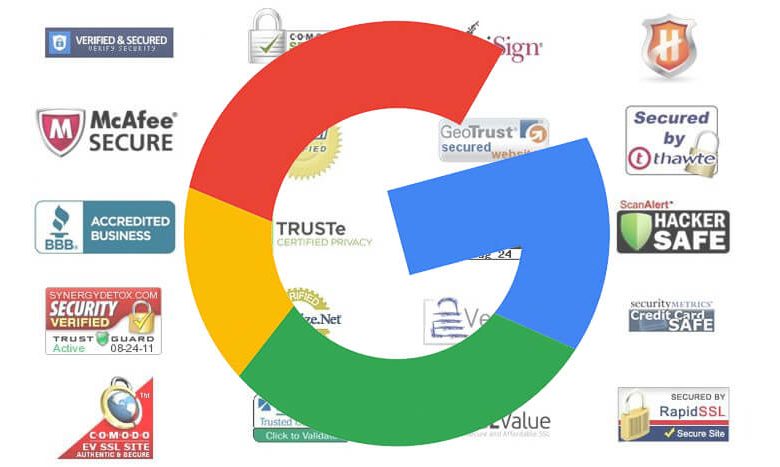
Search engine optimization is an ongoing process that frequently undergoes changes and adjustments, many of which seem to come unexpectedly.
This past year has been particularly interesting and transitional for organizations aiming to rank well on Google’s search engine results. The recent changes have compelled many to rethink and refine their tactics.
In December, Kevin Svec and I sat down with Moz’s data scientist Dr. Pete Meyers to discuss some of the best SEO practices and mindsets to adopt in the foreseeable future. Throughout the podcast, Meyers shared valuable insights into big data, E-A-T Score, and how to leverage it, along with highlights from Google’s 2018 algorithm changes.
Making sense of Big Data
Over the past decade, Big Data has played a monumental role in the business world and everyday life. Experts estimate that around 2.5 quintillion bytes of data are produced daily. When harnessed correctly, organizations can gain amazing insights to improve their SEO, predict trends, create proactive strategies, and much more.
However, with so much data available, the challenge lies in finding the valuable insights amidst the overwhelming volume, thus avoiding data overload.
Meyers advises on how to make sense of website data and its relation to SEO.
“Focus more on the science part and a little less on the data part some days.”
Marketers and business managers often emphasize data collection, sometimes treating it as an end in itself. Meyers recommends understanding the questions you are trying to ask and the problems you are trying to solve before gathering data. Let these factors guide the data you search for.
For example, in terms of SEO, you want to understand metrics related to website traffic, but you need to dive deeper with questions like:
- Where is it coming from?
- What keywords are pulling in traffic based on data from Google Search Console?
- What pages are driving traffic?
- How can I replicate this success?
Moreover, if you are losing keywords your site is ranking for, consider questions like:
- What have I recently changed in my strategies?
- How has Google changed?
- How have similar sites been affected?
Asking these types of questions before gathering data can significantly reduce the volume you have to work with, saving time and effort in making sense of it all.
Addressing the latest changes
There were numerous changes to Google’s algorithms in 2018, with one of the most noteworthy being the Medic Core Update on Aug. 1. This update greatly impacted the Your Money Your Life (YMYL) industries – e.g., finance, law, healthcare, etc.
Meyers theorized that one of the common threads was a content-related update, particularly affecting the healthcare industry. While some websites saw significant gains, many experienced big drops. Meyers believes there is a connection between the update and Google’s effort to deal with bad advice or poor information in YMYL content.
Meyers also provided a list of the top 30 winners and losers of the algorithm change.
For instance, if users wanted to learn more about a specialty diet or health plan, reading content from an unqualified source could potentially be dangerous. This is especially true in healthcare but also applies to personal finance, law, and other industries that directly impact people’s lives.
YMYL organizations can do many things to improve their rankings post-Aug. 1, 2018. Fundamentally, they need to prioritize creating highly credible content that offers meaningful and actionable insights and improve their E-A-T Score.
What exactly is E-A-T score?
The E-A-T score – which stands for Expertise, Authority, and Trustworthiness – is critical for YMYL industries to rank well on the SERPs.
Expertise refers to demonstrating your skills in the field as the creator of the main content, producing content that is both truthful and valuable to readers.
Authority is about having the validation as an expert. Your credentials and online reputation play significant roles in establishing authority.
Trustworthiness mainly concerns the platform where the content resides. The website must make users feel safe, especially if it involves the exchange of personal information.
While the E-A-T Score has long influenced Google rankings, its definition has often been ambiguous.
According to Meyers, the individual associated with a piece of thought leadership content is now crucial for its ranking on Google. However, measuring the exact formula for the E-A-T score isn’t straightforward.
How can you play by the rules?
Abiding by Google’s complicated rules in 2019 is complex. Given Google’s goal to provide the best content based on user queries, focusing on the E-A-T Score will be crucial.
Understanding the Search Quality Guidelines can be tricky.
To establish Expertise, focus on personal branding and creating accurate content. For instance, if writing about the keto diet, provide proof of your qualifications, back up claims with relevant data, and ensure readers have all the necessary information.
“Some of the sites we saw that improved had a very clear topical focus. They are very clearly themed within their niche. One author noticed she is well-themed in her industry and tackles sub-themes. She publishes an article about a sub-theme, then adds two or three more articles within that same sub-theme over the next few weeks. The third or fourth article would rank much quicker than the original content. We’ve seen many sites follow that pattern.”
Google prefers a clear sense of topical focus as a writer consistently contributes within a defined niche.
Building Authority involves more than just establishing an online reputation. Using expert-level content to build a reputation in a specific field and steadily improving your online presence are key aspects.
- Seek out Google verified reviews
- Engage with the community and influencers in your industry
- Gain relevant, high-quality links
These actions can help boost your authority.
For Trustworthiness, start by acquiring an SSL certificate, if you haven’t already. Incorporate trust seals on your website, such as those from the Better Business Bureau and Google Checkout logos.
Prepare for more changes
Playing by Google’s rules in 2019 and beyond is just the beginning. Keep in mind, the rules are always subject to change. As we move further into 2019, expect numerous algorithm updates and adjustments.



